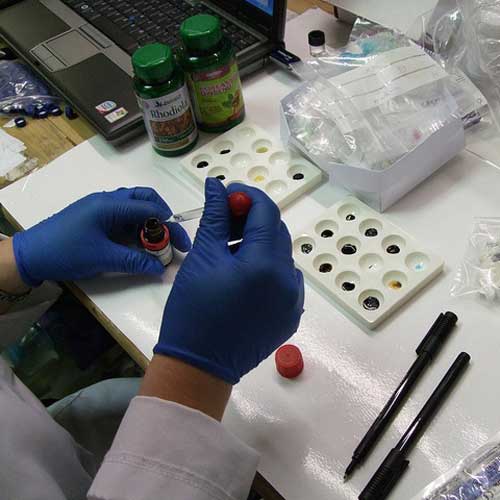Workplace drug testing is becoming more and more commonplace in the UK. In October 2014, the BBC reported that the amount of companies asking staff to take a drugs test had increased significantly over the last four years. That was ten years ago, yet the trend still continues. So, why is this?
Who’s Being Tested?
Worker impairment due to recreational drug use is a hot topic in the UK. Outside of the country, it’s an even bigger issue now. In many countries, worker impairment is causing headaches for employers as more countries pass medical and recreational cannabis laws. It is only a question of time before the UK will need to address these issues too.
Specific groups that are now being “targeted” for drug testing at work include,
- Construction Workers (for example, Barratt Developments)
- Oil Workers
- Rail Workers
- Students
- Taxi Drivers
- Teachers
- Vehicle Drivers
The groups named above is just a small example of specific industry groups. It’s a taste of things to come. In the UK, you can be sure that workplace drug testing will touch every business in the next few years, without exception.
Random Drug Testing In The UK Workplace
Drug testing by employers is normally carried out on a random basis. Sometimes it is also required prior to employment, on suspicion of drug use, or on cause, following an incident or accident.
Because the drug testing of employees and prospective employees is a relatively new concept for many UK companies, many firms are unsure where they stand when it comes to asking staff to take a drug test, as they have no drug testing policy in place.
As the law stands now, employers need employee consent for drug testing. Often this will be covered in the employees’ contract or the staff handbook. This simple concept is complicated however by the fact that tribunals would normally expect employees to reasonably give their consent to undergo drug testing. In simple terms, an employee must have good grounds to refuse a drug and alcohol test. That is, they must be confident that the employer has requested the test irresponsibly or has been unfair.
Most employees are normally expected to reasonably give consent for workplace drug testing. Any worker who does not want to take a test should seek professional advice from their union or line manager. They should do this before refusing to give a test sample. However, pre-consent is often implicit in many contracts of employment. That is, the contract will include a clause agreement between the employee and employer agreeing drug and alcohol screening during the period of employment.
Workplace Drug Testing for Employers
UK employers have a number of responsibilities:
- They should only drug test where it is appropriate.
- They must also be be fair in the implementation of the drug testing procedure.
- Employers should operate testing in a fully random fashion. For instance, they must not to single out particular employees for drug and alcohol testing, unless this is justified by the nature of their jobs or their actions.
Workplace drug testing is far more common in safety critical employment roles. In these cases, testing frequencies may reasonably be far more frequent. There is no guidance in UK law regarding the frequency of random testing for specific employment roles.
Employees can not be forced or made to take a drug or alcohol test. If they refuse when the employer has good grounds to request a test, and has acted fairly and responsibly, then the employer can take disciplinary action.
Employers have a legal responsibility to ensure a safe workplace. As a result, this includes ensuring that no employee is undertaking employment under the influence of drugs or alcohol.
Ensuring Fair and Consistent Testing Practices
When implementing workplace drug testing, it’s crucial that employers establish clear, well-documented policies to ensure fairness and consistency. Key considerations include:
- Defining which positions are subject to testing and why
- Specifying the circumstances that trigger testing (pre-employment, random, post-incident, reasonable suspicion)
- Detailing the testing procedures and safeguards to protect employee privacy
- Outlining the consequences of a positive test or refusal to test
- Providing resources for employees who may have a substance abuse problem
By thoughtfully crafting and communicating their drug testing policy, employers demonstrate their commitment to an equitable, transparent process that prioritises workplace safety.
Checking The Premises
The scope of workplace drug testing can also involve checking the premises rather than the employee. This is also a useful way of picking up evidence that might give an employer greater authority to test a member of staff. An example of this would be the use of a cocaine drug wipe to check if an area has been utilised for drug usage. Similarly, a drug swab kit would check for all types of drugs in one sweep. (You can read more in our blog article about drug swab test kits)
Workplace Drug Testing Using a Saliva Drug Screen
Most employers in the UK use a saliva or oral fluid drug test kit as a first line drug screening test. Such kits give instant, on-site results. We would consider this to be best first line drug test kit option. This is because it it is minimally non-invasive, easy and safe to collect in front of the individual being tested, with observed sample collection. The Zoom Testing saliva drug test is a seven panel drug test that is considered to be an ideal combination drug test for employers in the UK.
Medical Cannabis Legalisation
In recent years, several countries have legalised medical cannabis, including the UK in 2018. This has created challenges for workplace drug testing policies. While employees may be using cannabis for legitimate medical reasons, cannabis use can still impair performance and judgement on the job. Employers need to balance safety with disability rights. Clear policies around medical cannabis use at work are important.
Workplace Drug Use Statistics
According to a 2022 survey, over 500,000 people in the UK went to work while under the influence of drugs in the past year. Cannabis was the most common drug used before work, followed by cocaine, MDMA and ketamine. The construction industry had the highest drug use rates.[1] With significant levels of impairment due to drug use, more employers see testing as a necessary safety measure.
Emerging Psychoactive Substances
So-called “legal highs” also present new challenges for drug testing. Novel psychoactive substances that mimic illegal drugs are constantly emerging, faster than tests can keep up. Some variants can slip past traditional testing panels. But specialised labs are developing more sophisticated methods to detect new compounds.[2] Keeping testing methods up-to-date is crucial.
In summary, workplace drug testing continues to rise in the UK and globally. Safety issues around cannabis laws, increased usage rates and new psychoactive drugs drive more employers to implement drug screening. Clear policies, respect for medical use and updated testing helps balance worker rights with safety.
Contact Zoom Testing
If you require more information on the tricky subject of employee consent for drug testing, please contact us.
Similarly, we supply reliable drug test and alcohol screening kits that are accurate for workplace screening, visit www.zoomtesting.co.uk. If you require more information on the tricky subject of employee consent for drug testing, please contact us.
[1] 2022 Workforce Drug Use Survey, DrugWise
[2] Novel psychoactive substances – New challenges in the field of addiction for legislation and research, Neuropharmacology, 2023
Photo: Image courtesy of ukhomeoffice on Flickr
Zoom Testing is a leading UK drug testing company and a supplier of Drug Test Kits.





